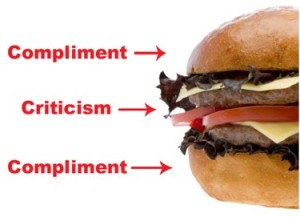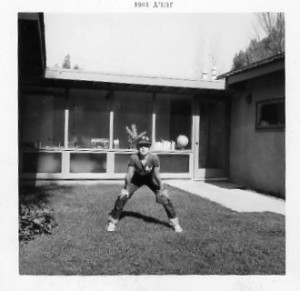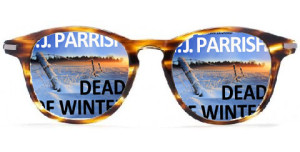Today I welcome back to TKZ my friend and editor, Jodie Renner, to share tips on imparting factual information without it coming off like the dreaded “info dump”. Enjoy!
——————-
by Jodie Renner, editor, author, speaker
Strategies for Turning Impersonal Info Dumps into Compelling Copy
As a freelance fiction editor, I find that military personnel, professionals, academics, police officers, and others who are used to imparting factual information in objective, detached, bias-free ways often need a lot of coaching in loosening up their language and adding attitude and emotions to create a captivating story world.
Really need those facts in there? Rewrite with attitude!
Say you want to write a fast-paced novel and your background is in a specialized field, so you decide to set your story in that milieu you know so well. Maybe you want to write a legal thriller or a medical suspense, or a mystery involving scientific research or stolen artifacts. Or maybe you’d like to use your military, police, or forensics experience, but your writing experience to date has mainly been confined to producing terse, objective, factual reports.
As you’re writing your story, you decide at various points that you need to interrupt the story to explain something the readers may not understand. And you want to get it right, both to lend credibility to your story and because you’re concerned about criticism from other professionals in your field. Your first impulse might be to copy and paste sections on that topic from a journal or online search, then tweak them a bit. Or just stop to explain the technical points in your own words, factually, as you would in a report or research paper, then go back to your storyline. Big mistake.
You’ve just interrupted an exciting (we hope!) story to give a mini-lecture. Remember that the main purpose of fiction is to entertain your readers with an engaging tale. To do that, it’s critical to stay in the story and in the viewpoint and voice of your compelling, charismatic (we hope!) characters.
How to keep your credibility but write with passion and tension
Want to keep your readers turning the pages? Try to turn off possible reactions of colleagues in your field and remind yourself that your goal here is to entertain a broad spectrum of the population with a riveting story. So limit your factual, informative details to only what is necessary for the plot, and present them through the character’s point of view, with lots of tension and attitude.
Go through the section several times and keep loosening up the words and sentence structure to take out the stuffiness and achieve a more casual tone, in the voice of the point of view character for that scene – it needs to be their thoughts, not the author stepping in. And introduce emotions and reactions – make the character frustrated, angry, or anxious.
And if it still sounds like a university lecture or a journal entry, make your character less reserved, less nerdy, less buried in his work. Give him more charisma and universal appeal, even a bad-boy rebellious side, and add quirks and more attitude.
Better yet, insert another, contrasting character to the mix to add in some tension, conflict and contrast.
Present the facts in a heated dialogue.
To impart some specific information while keeping your readers turning the pages, try these steps:
1. First, in a separate file, copy or write the bare facts in a paragraph or two – up to a page.
2. Go in and loosen up the language a bit – rewrite it in layman’s language.
3. Choose two interesting characters who each have some kind of stake in this info and are passionate about the topic, but in different ways.
4. Give them both charisma and quirks – and opposite personalities. Maybe make them competitive or distrustful.
5. Give them each their unique voice, based on their personality differences.
6. Give them opposing views on the topic or conflicting goals.
7. Using those facts, create a question-and-answer or argumentative dialogue between the two characters.
8. Add in some character actions, reactions and sensory details.
Now it’s starting to read like fiction!
Remember, most of your readers will be outside your field of specialty, and won’t find those dry factual details as fascinating as you do!
A before-and-after example, disguised from my editing:
Setup: A rebellious, trigger-happy cop has been ordered to be examined by a psychiatrist.
The brief “info dump” part starts with “Dr. Brown flipped…”
Before:
Dr. Brown opened up Jake’s file. “What happened after you were discharged from the Army?”
“I decided to become a cop. After police academy, I was assigned a beat in the Washington Park area in the South Side of Chicago.”
“The Washington Park area?” Dr. Brown asked. “That’s a pretty rough part of town.”
“Yeah, it reminded me of downtown Baghdad,” Jake quipped.
Dr. Brown flipped a few pages in the file where there was some background on Washington Park. The summary stated the area was only 1.48 square miles but was usually considered either the most dangerous or second most dangerous neighborhood in the United States. In fact, in some years it had seen more than three hundred violent crimes committed on its turf. Crimes such as murder, robbery, drug-dealing, assaults, prostitution, and rape were committed regularly in Washington Park.
After:
Here, the author has replaced the above factual paragraph with a dialogue.
“Washington Park?” Dr. Brown asked. “That’s a pretty rough area, I hear.”
“Yeah, it reminded me of downtown Baghdad,” Jake quipped.
“How so?”
“The area is tiny, barely one and a half square miles, but it’s infested with crime. Some years you get more than three hundred violent crimes there.”
“Really?”
“Yeah, murder, drug-dealing, robbery, assaults, prostitution, rape—you name it, they’re all run-of-the-mill activities in that area. Stress city, man—I made my bones there.”
How the experts do it – with attitude!
Here’s an excerpt from a scene in a crime lab, as an example of how bestselling thriller author Robert Crais reveals the details of the fingerprinting process without interrupting the story to fill in the reader as an author aside:
[…] The white smear was aluminum powder. The brown stains were a chemical called ninhydrin, which reacts with the amino acids left whenever you touch something.
Starkey bent for a closer inspection, then frowned at Chen as if he was stupid.
“This thing’s been in the sun for days. It’s too old to pick up latents with powder.”
“It’s also the fastest way to get an image into the system. I figured it was worth the shot.”
Starkey grunted. She was okay with whatever might be faster.
“The nin doesn’t look much better.”
“Too much dust, and the sunlight probably broke down the aminos. I was hoping we’d get lucky with that, but I’m gonna have to glue it.”
“Shit. How long?”
I said, “What does that mean, you have to glue it?”
Now Chen looked at me as if I was the one who was stupid. We had a food chain for stupidity going, and I was at the bottom.
“Don’t you know what a fingerprint is?”
Starkey said, “He doesn’t need a lecture. Just glue the damned thing.”
And it goes on like this. Entertaining reading, and we’re learning some interesting stuff at the same time.
~ from The Last Detective, by Robert Crais
Another good example of how to impart info without boring your readers:
Here’s how Lynn Sholes and Joe Moore provide some information on a well-known structure in Las Vegas, without sounding like a travelogue or encyclopedia. This is from The Blade, an excellent thriller I edited in late 2012:
Setting: The Strip, Las Vegas
“So the Reverend Hershel Applewhite is a liar,” I said when Kenny returned from accompanying Carl down to the hotel lobby.
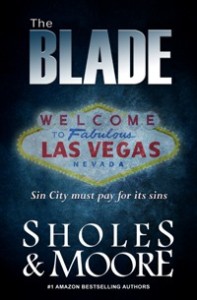 I stood at the window staring at the imposing pyramid-shaped Alexandria Hotel in the distance. I’d read somewhere that the forty-two-billion candlepower spotlight at the top of the hotel could be seen from space. The same guy who designed it—I couldn’t remember his name—built similar pyramid hotels with beacons in South Africa and China. Claimed he wanted his lights to be seen from every corner of the world.
I stood at the window staring at the imposing pyramid-shaped Alexandria Hotel in the distance. I’d read somewhere that the forty-two-billion candlepower spotlight at the top of the hotel could be seen from space. The same guy who designed it—I couldn’t remember his name—built similar pyramid hotels with beacons in South Africa and China. Claimed he wanted his lights to be seen from every corner of the world.
Writers and readers – do you have a short example to share of imparting info with attitude?
————
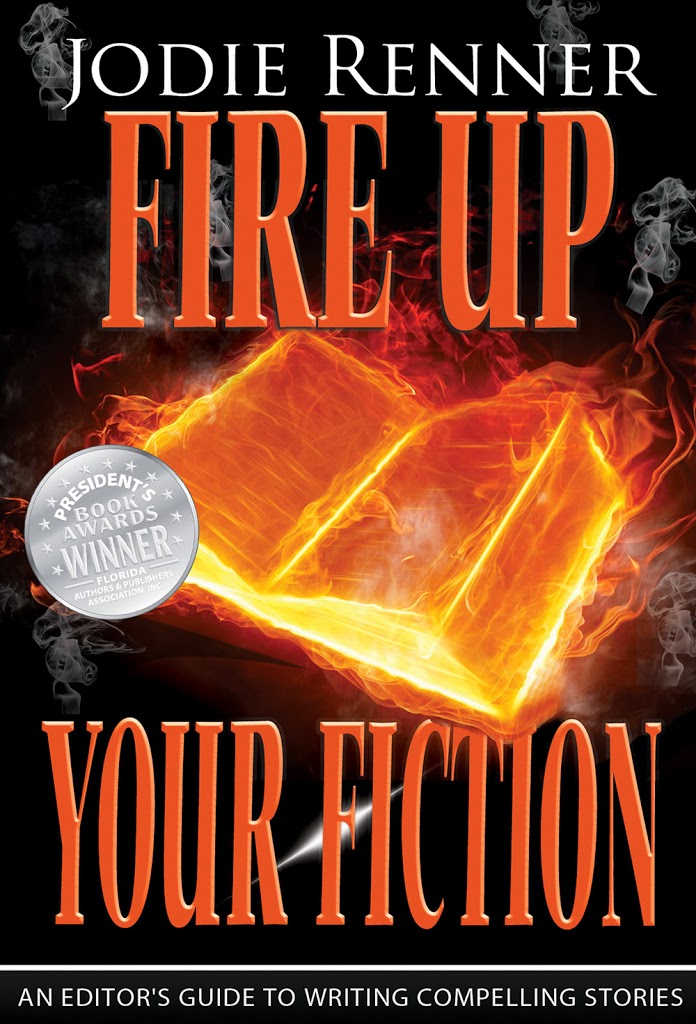 Jodie Renner is a freelance fiction editor and the award-winning author of three craft-of-writing guides in her series An Editor’s Guide to Writing Compelling Fiction: Captivate Your Readers, Fire up Your Fiction, and Writing a Killer Thriller. She has also published two clickable time-saving e-resources to date: Quick Clicks: Spelling List and Quick Clicks: Word Usage. You can find Jodie at www.JodieRenner.com, www.JodieRennerEditing.com, http://jodierennerediting.blogspot.com/ and on Facebook, Twitter, and Google+.
Jodie Renner is a freelance fiction editor and the award-winning author of three craft-of-writing guides in her series An Editor’s Guide to Writing Compelling Fiction: Captivate Your Readers, Fire up Your Fiction, and Writing a Killer Thriller. She has also published two clickable time-saving e-resources to date: Quick Clicks: Spelling List and Quick Clicks: Word Usage. You can find Jodie at www.JodieRenner.com, www.JodieRennerEditing.com, http://jodierennerediting.blogspot.com/ and on Facebook, Twitter, and Google+.

